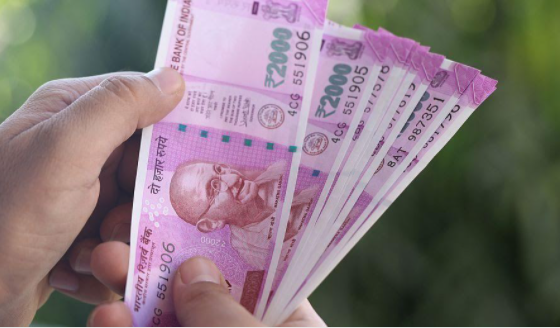There are many such savings schemes of the post office, in which you get tax benefits. In such a situation, today we are going to tell you about such schemes, in which you are given tax benefits along with earning.
The Post Office has not made any changes in the interest rates of small savings schemes for some time now. Whereas before that interest rates were cut. That is, the earnings from these schemes have decreased. Even after that, the post office schemes are getting more interest than FD or on the other hand government schemes. Along with this, tax benefits are also being given.
There are about 9 small savings schemes of the post office, most of which offer tax benefits. So in nothing. At the same time, there are some schemes in which TDS is deducted on interest, but no tax is deducted on the maturity amount. Let us also tell you what kind of tax benefit is available in these post office schemes.
Which post office scheme offers tax benefits?
- Under Section 80C of the Income Tax Act, exemption has been given on investment up to a maximum of Rs 150000 in Kisan Vikas Patra Scheme.
- Under Section 80C of the Income Tax Act, a tax deduction of Rs 1.5 lakh per annum will be provided on the Post Office Time Deposit Scheme.
- The interest earned under the Five Recurring Deposit Account Scheme of the Post Office is fully taxable.
- Interest earned and maturity amount earned under Section 80C of Income Tax Act in
- Post Office Savings Account is tax free and tax deduction of Rs 1.5 lakh is also available.
- In Senior Citizen Saving Scheme, tax exemption up to Rs 150000 under section 80C and TDS rebate of up to Rs 50000 on interest is available.
- Tax exemption up to Rs 50000 is given on interest in Sukanya Samriddhi Account.
- There is no exemption under the Post Office Monthly Income Scheme and the interest is also fully taxable.
- In the National Savings Certificate Scheme, a tax exemption of Rs 1.5 lakh has been given under section 80C.
- The interest in Public Provident Fund attracts TDS while the maturity amount is completely tax free.
In which scheme the minimum and maximum investment
- In Post Office Savings Account, you can open your account with a minimum amount of Rs 500, but there is no maximum limit.
- One can start with a minimum of Rs 100 in National Savings Recurring Deposit Account, but there is no maximum limit.
- A minimum investment of Rs 1000 can be made in the National Saving Time Deposit Account, while there is no maximum limit.
- One can start with a minimum of Rs 1000 in National Savings Monthly Income Account. Whereas maximum Rs 450000 can be invested in single account and Rs 900000 in joint account.
- In Senior Citizen Savings Scheme Account, you can invest Rs 1000 annually, while maximum Rs 150000 can be invested.
- One can start with a minimum of Rs 500 in a Public Provident Fund account and one can invest a maximum of Rs 150000 annually.
- National Savings Certificate Account is Rs 1000 and there is no maximum investment limit.
- You can start with a minimum investment of Rs 1000 in Kisan Vikas Patra Account, while there is no maximum limit.
- You can invest a minimum of Rs 250 in Sukanya Samriddhi Account, while the maximum investment can be made annually is Rs 150000.


